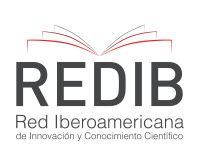Evaluating the effect of an educational intervention regarding congenital syphilis in healthcare-workers in the Urabá region of colombia, 2008. A before and after study
DOI:
https://doi.org/10.18597/rcog.135Keywords:
Gestational syphilis, congenital syphilis, healthcare education, rapid syphilis testAbstract
Objective: Evaluating the effect of an educational intervention aimed at healthcare personnel regarding adherence to gestational syphilis (GS) and congenital syphilis (CS) management guidelines, early and suitable reporting of cases of GS and CS and their perception about using a rapid point-ofcare test for diagnosing syphilis.
Materials and methods: An intervention study was carried out involving before and after measurement. Population: staff working in first-level healthcare centres in a rural area attending the population of Turbo located in Colombia’s Caribbean region, close to Panamá, during 2008. Such intervention consisted of training healthcare staff, delivering printed material and providing a rapid point-ofcare syphilis test. How effectively the healthcare staff had acquired such knowledge and the effect of the training given on attending patients was evaluated regarding adherence to the guidelines, notification and workers’ perception of using the rapid test. Information was directly obtained from the healthcare staff and the clinical histories of females attending the programme. Statistical analysis: A Wilcoxon signed-rank test was used for evaluating changes when scoring the test of their knowledge (before/after). A Chi2 test was used for evaluating changes in percentages regarding fulfilling the recommendations (statistical significance was fixed at 5%).
Results: 533 clinical histories were evaluated and 129 people were trained. Reporting GS cases in Turbo improved significantly (8% vs 48%; p = 0.01), as well as the healthcare personnel’s level of knowledge (p = 0.002), the search for (18% vs 53%; p = 0.001) and treatment of contacts (10% vs 29%; p = 0.034) and suitable treatment of the new-born (47% vs 85%; p = 0.03). Healthcare personnel had a favourable opinion about the rapid syphilis test.
Conclusions: Training orientated towards resolving local problems improves the quality of healthcare attention provided for pregnant females and newborns babies suffering syphilis.
Author Biographies
Liliana Isabel Gallego-Vélez
Joaquín Guillermo Gómez-Dávila
John Jairo Zuleta-Tobón
Jesús Arnulfo Velásquez-Penagos
Silvia Elena Uribe-Bravo
References
Ingall D, Sánchez P, Baker C. Syphilis. En: Remington JS, Klein JO. Infectious diseases of the fetus and newborn infant. 3 ed. Philadephia: W B Saunders; 2006. p. 545-80.
Berman SM. Maternal syphilis: pathophysiology and treatment. Bull World Health Organ 2004; 82:433-8.
Instituto Nacional de Salud. Notificación de eventos de interés en Salud Pública 2008-2010. Vigilancia y Control en Salud Pública -Publicaciones. (Visitado 2012 Oct 1). Disponible en: http://190.26.202.205/index.php?idcategoria=94562.
Departamento Administrativo Nacional de Estadística (DANE). Estadísticas vitales - Nacimientos por área y sexo, según departamento y municipio de residencia de la madre. (Visitado 2012 Oct 1). Disponible en: https://www.dane.gov.co/index.php?option=com_content&view= article&id=1043&Itemid=119.
Uribe S, Peña B. Informe final de auditoría de la calidad, maternidad segura, ESE Hospital Francisco Valderrama, Turbo. Secretaría Seccional de Salud de Antioquia; 2007.
Instituto Nacional de Salud - Ministerio de Salud y la Protección Social. Protocolo de Sífilis congénita y gestacional. Bogotá: INS; 2007.
Instituto Nacional de Salud. Protocolo de vigilancia y control de sífilis gestacional y congénita. Grupo Enfermedades Transmisibles. Equipo Funcional Infecciones de Transmisión Sexual. Bogotá: INS; 2011.
Valderrama J. Metodología para estudios de subnotificación de sífilis en embarazadas. Organización Panamericana de la Salud. Washington, D.C: OPS; 2005.
Jenniskens F, Obwaka E, Kirisuah S, Moses S, Yusufali FM, Achola JO, et al. Syphilis control in pregnancy: decentralization of screening facilities to primary care level, a demonstration project in Nairobi, Kenya. Int J Gynaecol Obstet 1995;48:S121-8.
Deperthes BD, Meheus A, O´reilly K, Broutet N. Maternal and congenital syphilis programmes: case studies in Bolivia, Kenya and South Africa. Bull World Health Organ 2004;82:410-6.
Bronzan RN, Mwesigwa-Kayongo DC, Narkunas D, Schmid GP, Neilsen GA, Ballard RC, et al. On-site rapid antenatal syphilis screening with an immunochromatographic strip improves case detection and treatment in rural South African clinics. Sex Transm Dis 2007;34:S55-60.
Hawkes S, Miller S, Reichenbach L, Nayyar A, Buse K. Antenatal syphilis control: people, programmes, policies and politics. Bull World Health Organ 2004;82:417-23.
Regional initiative for elimination of Mother-tochild transmission of HIV and congenital syphilis in Latin America and the Caribbean. Publication No. OPS/FCH/HI/05-10.I © Pan American Health Organization; 2010.
The Global Elimination of Congenital Syphilis: Rationale and Strategy for Action. Geneva: World Health Organization; 2007.
Park MA, Li JT. Diagnosis and Management of Penicillin Allergy. Mayo Clin Proc 2005;80:405-10.
The International Collaborative Study of Severe Anaphylaxis. Risk of anaphylaxis in a hospital population in relation to the use of various drugs: an international study. Pharmacoepidemiol Drug Saf 2003;12:195-202.
The Use of Rapid Syphilis Tests. The Sexually Transmitted Diseases Diagnostics Initiative (SDI). Special Programme for Research & Training in Tropical Diseases (TDR) sponsored by UNICEF / UNDP / World Bank/ WHO; 2006.
World Health Organization. The sexually transmitted diagnostics initiative (SDI): special programme for research and training in tropical diseases (TDR). Geneva: World Health Organization; 2003.
Herring AJ, Ballard RC, Pope V, Adegbola RA, Changalucha J, Fitzgerald DW, et al. A multi-centre evaluation of nine, rapid, point-of-care syphilis tests using archived sera. Sex Transm Infect 2006;82:v7-12.
How to Cite
Downloads
Downloads
Published
Issue
Section
License
Copyright (c) 2015 Revista Colombiana de Obstetricia y Ginecología

This work is licensed under a Creative Commons Attribution-NonCommercial-NoDerivatives 4.0 International License.
| Article metrics | |
|---|---|
| Abstract views | |
| Galley vies | |
| PDF Views | |
| HTML views | |
| Other views | |
















